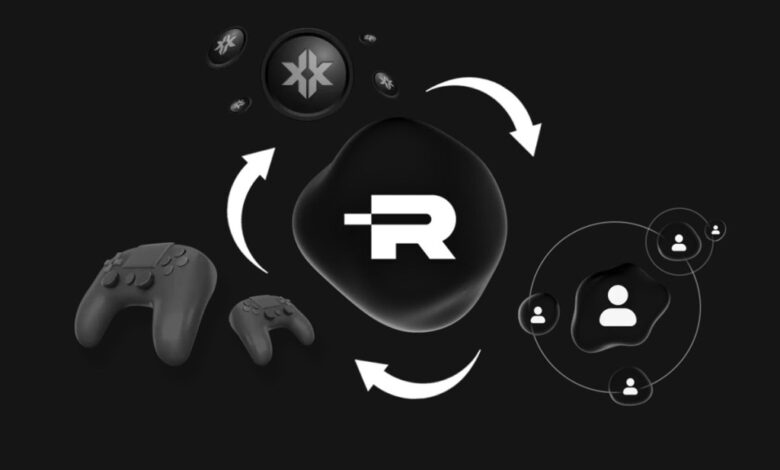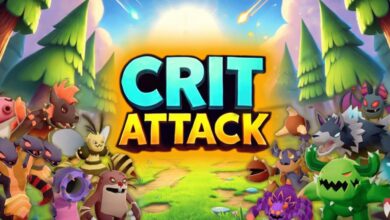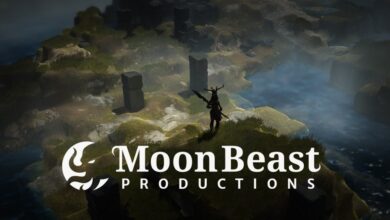Reach Labs will publish Web3 games with rewards for players who promote them

Reach Labs is a new Web3 game publisher formed by partnership of gaming startups Rough House Games and Overworld. The deal brings together serial gaming entrepreneurs Chris DeWolfe and Jeremy Horn, all in the name of solving the discovery problem for games.
The unique thing they’re proposing is to democratize game publishing through a proprietary marketing and distribution platform that rewards players for playing and sharing the games they love. Reach will incentivize players, influencers, and guilds to drive players into games. Reach aims to decentralize user acquisition and make it more social, reducing reliance on platforms like Facebook and Google.
DeWolfe, who became famous for cofounding MySpace and Jam City, leads Rough House Games with backing from A16z. Meanwhile, Horn runs Overworld (backed by Hash) and he is a cofounder of Web3 firm Xterio. Horn has a long history in games at companies such as FunPlus, Jam City, TinyCo and Gameloft. Xterio itself raised more than $80 million.

Reach Labs will kick off by developing and operating a diverse portfolio of high-quality cross-platform games, including Rough House Games’ Champions Ascension, a critically acclaimed Web3 fighting game, alongside Overworld’s anticipated titles, codenamed Conquest, an action RPG for PC and consoles, and Kingdoms, a free-to-play strategy mobile game, with several additional projects in the works.
It’s taken a journey for DeWolfe to get to this stage. He started Jam City with Josh Yguado and they grew it to hundreds of millions of dollars in revenue. But when Apple prioritized user privacy over targeted ads a few years ago, user acquisition started failing even as its costs rose.

DeWolfe studied the Web3 market and saw opportunities to both improve user acquisition and reward players. He spun out his Champions Ascension Web3 game into a new venture-backed startup, while Yguado stayed at Jam City as CEO. DeWolfe also started Plai Day as an experiment with social imagery created by generative AI. Horn had a similar journey, realizing how tough mobile gaming had become and how Web3 games offered a better way to monetize and restore virality to user acquisition. More details of how the partnership works will come out later.
DeWolfe and Horn often talked together about how user acquisition was inherently broken. And they also saw that games just weren’t social enough. As they compared notes, they decided to come together in a “very deep partnership and work on a platform called Reach,” DeWolfe said in an interview with GamesBeat.
“Everyone is working together to solve this huge problem. Our platform incentivizes players, influencers, game makers, guilds to drive players into virtually any game. It democratizes the whole process that where you would have had to go to Facebook or Google and pay a ton of money.”
The Reach platform

The Reach platform offers game developers and studios an innovative distribution solution to address significant game industry headwinds like fractured audience attention, increasingly crowded marketplaces, and soaring marketing and user acquisition costs. With Reach, fans and creators can directly impact the growth of a game by onboarding their friends and communities while earning rewards for promoting and recruiting new players.
Reach Labs is partnering with the Keystone Protocol, a decentralized social network technology enabling true social virality, to provide a secure economic infrastructure to democratize distribution by empowering and rewarding players, creators, and communities to gather around games they love.
“Game developers are facing considerable challenges capturing and retaining a consistent player base,” said DeWolfe. “Reach is built on new technology to make games more discoverable and more social rather than relying on centralized platforms that overlook content creators.”
DeWolfe added, “Our solutions allow players to bring a network of friends to games while getting rewarded for it. We are kickstarting this new phase of the industry with our novel distribution solution, and making our technology available to partners to build their player base. Together with Overworld, we are redefining what it means to grow a game’s community, and enabling anyone to become a stakeholder.”

Reach takes a player-first approach to game publishing, marketing, and monetization, tapping into community engagement to fuel its growth. The platform provides Reach participants with tools to manage accounts, promote titles and drive community growth, enhancing engagement by fostering social interactions that extend beyond gameplay to involve the player’s entire social network.
By bringing more high-quality games onto the Keystone protocol, Reach believes the network effect will increase exponentially, making Reach the new marketing and distribution standard for a new era of games.
With the Reach platform, individuals can generate affiliate codes and promote games via social media, Twitch, and friends. Users can collect a portion of the revenue spent in the game by their referrals, making user acquisition profitable from day one.
“Xterio is thrilled to announce the formation of Reach, a partnership between our first-party studio Overworld, Rough House Games and Keystone Foundation,” said Michael Tong, CEO and cofounder (alongside Horn) of Xterio, in a statement. “Reach is set to redefine how gamers engage with and benefit from the games they love. By offering real incentives, we’re empowering communities to turn their passion into meaningful rewards.”

Tong added, “This joint venture will expand Overworld’s capabilities and strengthen the entire Xterio ecosystem. Together, we’re eager to democratize distribution, welcome a diverse network of third-party partners to our ecosystem, and enable them to grow their games with the backing of their fan communities.”
Reach plans to aggressively expand the number of games using the Keystone protocol through acquisitions and partnerships with other game studios and platforms. The first of these partnerships will be the Xterio ecosystem with its growing portfolio of game titles. The combination of the companies will have about 40 people.
DeWolfe said Rough House Games developed blockchain technology and donated it to the Keystone Foundation. The Keystone Foundation is a nonprofit organization that oversees the Keystone Protocol, an on-chain technology designed to revolutionize user acquisition for blockchain games. The foundation is committed to expanding its ecosystem of games, utilizing its network to fuel growth for both developers and players.
The Reach platform will initially focus on Web3 games but aims to eventually work with any game, leveraging blockchain technology.
Some of this sounds similar to Forge, founded by Dennis Fong and Kun Gao and spun out of GGWP, but Forge focuses on community building and campaign marketing, while Reach is more about affiliate marketing and ad tech, Horn said.
Under a more crypto-friendly administration in the U.S., DeWolfe believes that regulatory changes and the launch of games that reward users will lead to a significant explosion in the Web3 gaming market.
As gaming and brands drive players toward user-generated content, Horn and DeWolfe believe that blockchain becomes even more relevant.
Shifting political and business winds

Horn said that with the change in the political administration in the U.S., there will likely be more crypto-friendly regulation that will make projects such as the Reach platform easier. But both men noted that they will comply with regulations in jurisdictions as needed and won’t proceed too fast until clarity in the regulations arrives.
In the meantime, high-quality and fun Web3 games are starting to arrive and garner big audience, such as Pirate Nation.
“Now we’re seeing folks come over from Web2 and build quality games,” DeWolfe said. “I know for a fact there are dozens and dozens of triple-A Web3 games that are in development. There’s so much great content out there it’s hard to discover.”
DeWolfe said mobile is stagnating with the top 100 games continuing to dominate, with very few new entrants because the barriers to entry are so high. While games can be made by small teams, the user acquisition costs can be enormous, DeWolfe said.
“I came to the game industry because I love games, and it’s really sad to know that a new team that has a passion for products is just going to be crushed, not because the product is bad but because they have no they have no chance of even being discovered,” he said. “Hopefully, with Reach, we can give an avenue to those developers.”
Horn said he sees the Overworld games as hybrid Web2 and Web3 games, or Web 2.5. They will be released on mobile first and will have an alternative web site where players can engage in Web3 commerce.
As for Champions Ascension, DeWolfe said the game is fully playable with multiple modes like PvP and PvE as well as tournaments.
“We’re polishing it,” he said. “It’s a triple-A game. We’re going to integrate Reach into the game. We’re super excited about that.”
He hopes that eventually hundreds or thousands of games could benefit from Reach.
“We’re trying not to peg ourselves just into Web3, but we could be Web 2.5,” DeWolfe said.




